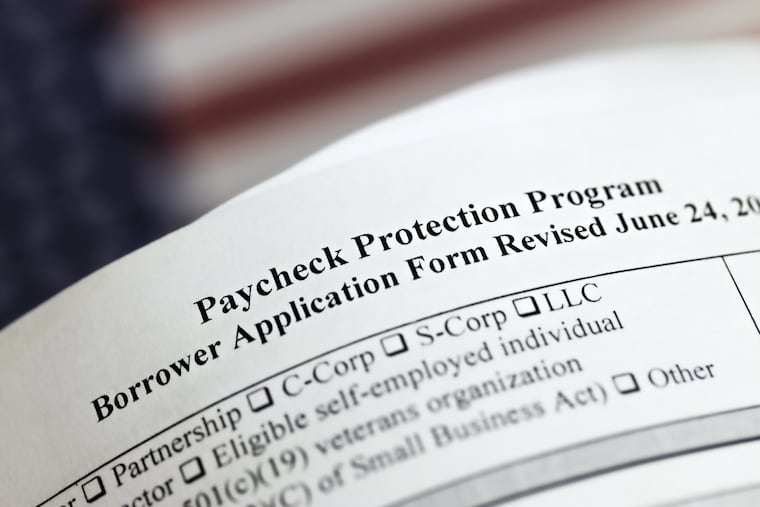A Philly man was sentenced to 6½ years in prison for using $1 million in PPP loans for personal expenses
Devron Brown, 51, pleaded guilty last year to using COVID-19 relief money to buy a Florida house, a Lexus, and jewelry. He told the judge he regretted his actions.

The owner of a Philadelphia construction company was sentenced Thursday to 6½ years in federal prison for fraudulently obtaining nearly $1 million of COVID-19 relief money intended to keep small businesses afloat, then buying personal items such as a house in Florida, a motorcycle, and diamond rings.
Devron Brown, 51, who pleaded guilty last year, told U.S. District Judge Chad F. Kenney that he regretted his actions and that they didn’t reflect his character or his devotion to helping people, some of whom testified on his behalf as character witnesses at his sentencing hearing.
Brown, without going into detail, told the judge it was “stupid” of him to have submitted bogus tax documents to the Paycheck Protection Program (PPP), the federal program of forgivable business loans aimed at helping companies weather the economic challenges caused by the pandemic.
“I made a mistake,” Brown said. “I regret it. If it was done again, it wouldn’t even be done.”
Several of his supporters afterward, without offering specifics, said they believed Brown had been misled by an accountant.
Kenney, however, told Brown his actions were not just stupid — but criminal. In imposing a sentence within the standard guidelines, the judge said it was clear to him that Brown should have known better than to submit false documents for emergency funds, and that he chose to use taxpayer dollars to line his own pockets rather than help his business or employees.
“He took it as an opportunity, and quite frankly, probably didn’t think he’d get caught,” Kenney said.
Justice Department officials have said recently that PPP-related fraud nationwide could be as high as $80 billion, about 10% of the total funding distributed during the relief program.
One man in Texas, convicted in a $24 million PPP scheme, used the proceeds to buy houses, pay off mortgages, and purchase what prosecutors called “a fleet of luxury cars.” He was sentenced to 11 years in prison.
Another man in Florida bought a $318,000 Lamborghini after receiving more than $3 million in PPP funding, prosecutors said.
The U.S. Attorney’s Office in Philadelphia said Brown submitted fraudulent payroll data and tax information in June 2020 to support a loan application of about $935,000 for his company, Just Us Construction. The loan was approved that month.
Shortly after that, prosecutors said, he spent $250,000 on a house in Deltona, Fla., nearly $43,000 to buy his mother a 2017 Lexus, and about $6,300 on an engagement ring and wedding band. He also bought a motorcycle, an excavator, and a Ford pickup truck.
In February 2021, when the funds from that loan had nearly run out, Brown tried to apply for another PPP loan but was denied, charging documents said.
He was charged by federal prosecutors in June, then failed to show up for a bail hearing and did not report to his probation officer, court records show. He was arrested in Florida in August 2021 and jailed while awaiting trial.
A host of family members and friends sat in the courtroom gallery Thursday and wiped away tears as he was sentenced.
Brown told the judge that he cared for many family members, including a 10-year-old daughter with health problems. He told Kenney that he knew he had to accept the judge’s sentence but that he hoped he’d have an opportunity to be released before his younger children were grown.
“I want to get this past me,” Brown said. “I want to go on with my life, and I want to do it in the right way.”